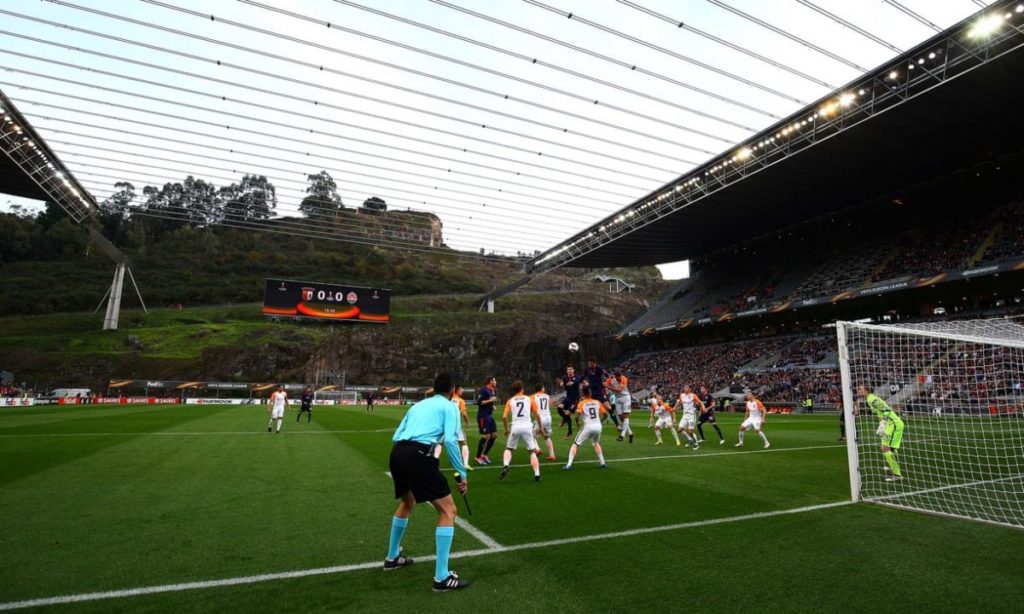
What makes Anfield better than Wembley? Why did Juventus fans hate the Stadio delle Alpi? And why are West Ham fans unhappy? Architects and design experts offer some answers
I’m a West Ham fan. Our stadium is not good. It’s beautiful, but broken. It hosted the greatest British sporting event of the last 50 years, a grand and gleaming Olympic Games, but cannot handle a lower-mid-table Premier League game. This half-a-billion pound stadium gleams in the sunlight, but it’s full of holes, gaps, missing pieces, large canyons between prefab stands that are papered over, almost literally, with plastic claret sheets. The stadium’s problems are not just physical; they’re also psychological. It doesn’t feel like a football ground because it’s not one. It makes you wonder: what makes a great football stadium?
Grounds grow to match the identity of their team. Character is more important than capacity or having a technologically advanced concourse. You know it when you see it – or feel it: this sense that you are tied only to geography but to history. “Liverpool are one of those clubs who have a really strong identity,” says Professor Murray Fraser of the Bartlett School of Architecture in London. “When you go to Anfield, it very obviously is the ‘church’ of that community around it. I found it quite astonishing when I first went there and saw the houses around it. The people who live in that area see the stadium every day, get to look at Anfield every day as they move around town, and that builds a huge sense of identity.”
There are plenty of grounds that inspire similar feelings of civic pride and awe. Sat bang in the middle of Burnley, Turf Moor feels hard worn and hard-won, its dressing rooms spare and its away seats wooden, typical of a team that have dragged themselves up from the lower reaches of the league. Thirty miles south, Manchester United’s giant Old Trafford still feels like it’s part of the community, lined with red-brick houses up Sir Matt Busby Way, a giant club famous for both its general bigness and its long-held reliance on local talent.
comments